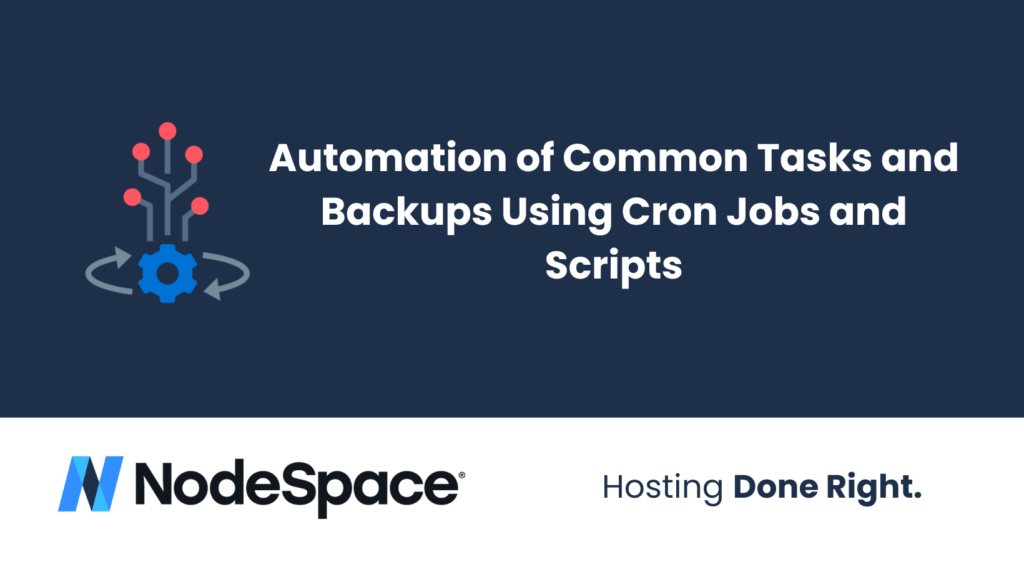Introduction
In the dynamic world of web hosting and server management, efficiency and reliability are pivotal. Automation plays a crucial role in achieving these goals, especially for small businesses striving to provide top-notch services with limited resources. One of the most effective tools for automation in a Unix-like environment is the use of cron jobs combined with scripts. This blog post delves into how you can harness the power of these tools to automate common tasks and backups, ensuring your services run smoothly and your data remains secure.
Understanding Cron Jobs
What are Cron Jobs?
Cron jobs are scheduled tasks that run automatically at specified intervals. They are part of the Unix-like operating systems, such as Linux, and are incredibly useful for automating repetitive tasks. Cron jobs can be set up to run scripts, commands, or programs at regular intervals, ranging from every minute to annually.
Why Use Cron Jobs?
The primary advantage of cron jobs is their ability to automate tasks without human intervention. This automation ensures that important tasks, such as data backups, security updates, and system maintenance, are performed consistently and without fail. For businesses like NodeSpace Hosting, this translates to improved reliability and efficiency in service delivery.
Setting Up Cron Jobs
Accessing the Cron Service
Cron jobs are managed through a daemon known as crond. To access the cron service, you typically use the crontab command. Each user on a system can have their own crontab, and there’s also a system-wide crontab for tasks that need to run under administrative privileges.
Creating a Cron Job
To create a cron job, you need to edit the crontab file using the command crontab -e. Cron jobs follow a specific syntax:
* * * * * /path/to/command arg1 arg2
These five asterisks represent, in order: minute (0-59), hour (0-23), day of the month (1-31), month (1-12), and day of the week (0-7, where both 0 and 7 mean Sunday). After these time fields, you specify the command or script to be executed.
Examples
- A cron job to run a backup script every day at 3 AM:
0 3 * * * /home/user/backup-script.sh - A cron job to check for system updates every Sunday at noon:
0 12 * * 7 apt-get update && apt-get upgrade
Writing Scripts for Automation
The Role of Scripts
Scripts are sets of commands stored in a file, which can be executed to perform complex tasks. They can be written in various scripting languages, such as Bash, Python, or PHP.
Creating Effective Scripts
When writing scripts for automation, it’s important to:
- Keep them simple and focused on one task.
- Include error checking and logging to track script execution and issues.
- Test them thoroughly in a safe environment before deploying.
Backup Script Example
Here’s a simple Bash script for backing up a MySQL database:
#!/bin/bash
# Backup Script for MySQL
DATE=$(date +%Y%m%d_%H%M%S)
BACKUP_DIR="/backup/mysql"
MYSQL_USER="backup_user"
MYSQL_PASSWORD="password"
DATABASE_NAME="mydatabase"
mysqldump -u $MYSQL_USER -p$MYSQL_PASSWORD $DATABASE_NAME > $BACKUP_DIR/db_backup_$DATE.sql
if [ $? -eq 0 ]; then
echo "Backup successful"
else
echo "Backup failed"
exit 1
fi
Best Practices for Cron Job Automation
Security Considerations
- Run scripts with the least privilege necessary.
- Secure sensitive data, such as passwords, used in scripts.
- Regularly review and update your cron jobs and scripts.
Monitoring and Logging
- Implement logging within scripts to record successes and failures.
- Monitor the execution and output of cron jobs to ensure they are running as expected.
Maintenance and Documentation
- Regularly review and clean up your crontab to remove outdated or unnecessary jobs.
- Document your cron jobs and scripts for future reference and troubleshooting.
Conclusion
For small businesses and web hosting providers like NodeSpace Hosting, the automation of common tasks and backups through cron jobs and scripts is not just a convenience – it’s a necessity. By efficiently managing repetitive tasks, you can focus more on growth and customer service, confident in the knowledge that your systems are running smoothly and your data is secure. Embrace these tools, and you’ll find your operations becoming more streamlined and reliable.



